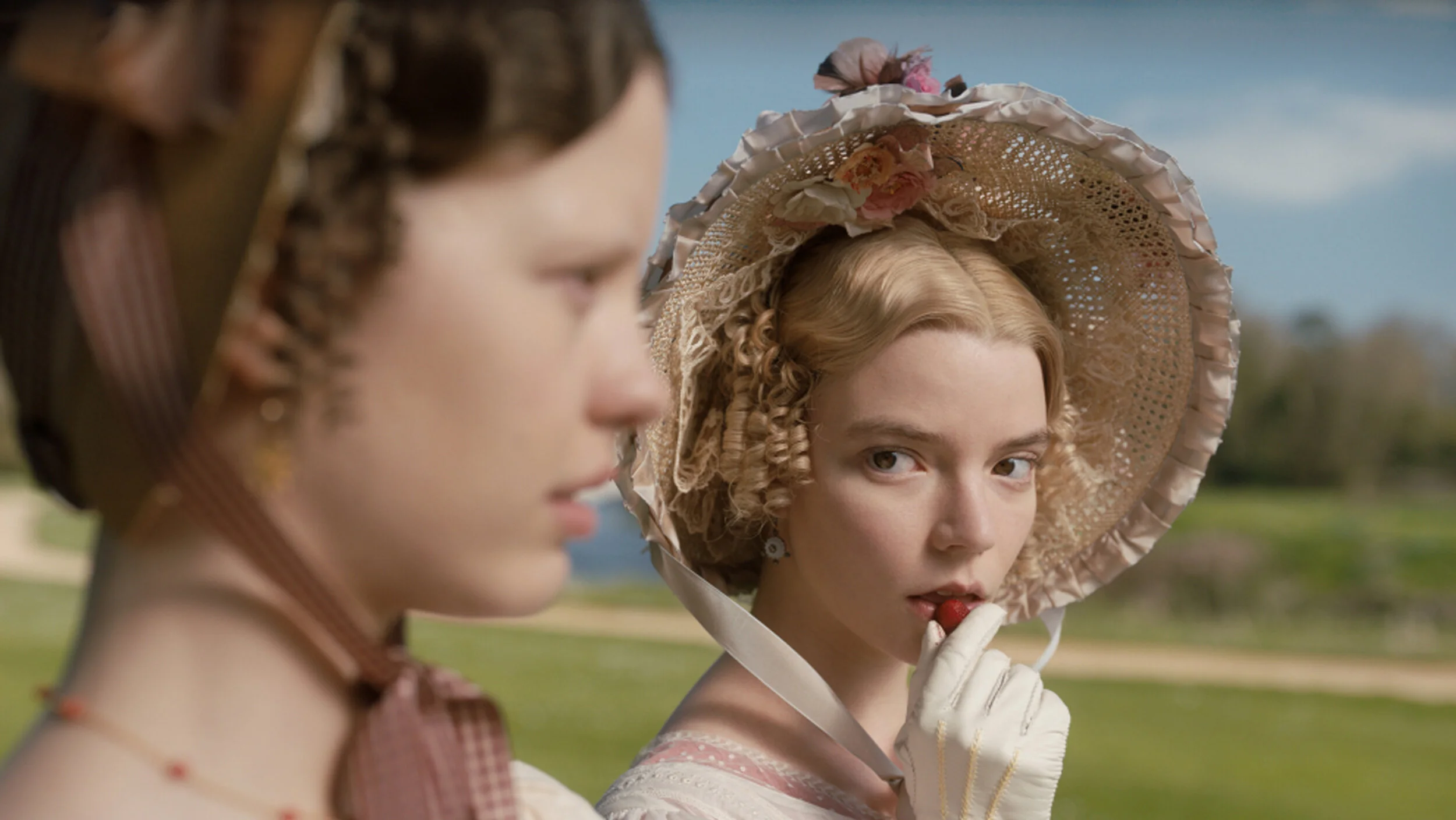Handsome. Clever. Rich: An ‘Emma.’ Film Review
by Will Lindus
“Emma Woodhouse, handsome, clever, and rich, with a comfortable home and happy disposition, seemed to united some of the best blessings of existence, and had lived nearly twenty-one years in the world with very little to distress or vex her. . .”
Jane Austen’s novel Emma begins with this sentence, a string of praises and subtle admonitions against the titular character which frame her as a young woman who is incredibly capable but who has mostly squandered her talents on trivial matters that suit her rich-girl fancy. Appropriately, Autumn de Wilde’s 2020 film adaptation - stylistically titled Emma. - begins with this same quote.
Emma Woodhouse finds herself in a position of great envy within her community in 1800s England. Born affluent, attractive, and witty, Emma has developed a reputation for being a master matchmaker; those that she puts together typically find happiness and marriage soon after. As a romantic puppeteer, Emma feels joy and contentment in her life, a life where little else of great importance is set to challenge her. However, she soon finds herself having to re-examine her actions and her relationships when several people in her life begin to collide, from her friend Harriet whose love life she meddles with, to the astute Mr. Knightly who sees through Emma’s vanity during his visit, and to the preacher Mr. Elton who finds himself trapped by Emma’s charms.
Autumn de Wilde understands the dichotomy of Emma’s personality, and understands that a great deal of balance would need to be deployed to translate this character to modern audiences. See, the idea of the rich girl who entertains herself by interfering in the love lives of others feels a bit pompous and unwelcome in the age of the Kardashians, Paris Hilton, and other celebrities who built their social media empires on the backs of inherited wealth.
Enter Anya Taylor-Joy as Emma. Until now, Taylor-Joy has established herself primarily as a genre actress, whether it be from the atmospheric tension she brought to The Witch, the grounded elements she brought to the ‘anti-comic book’ comic book movies of Split and Glass, or the sharp blend of apathy and affluence that she portrayed in Thoroughbreds. It is the latter which most informs her performance in Emma., as she brings to the role an air of charm and elegance, coupled with a naiveté that makes her most harmful actions come across as negligent instead of cruel. This is where we find the likable heroine in Emma, in her ability to both be in control of every situation she finds herself in while also being out of her depths as she realizes that the people in her life have autonomous emotions outside of her whims. She’s a stuck-up rich girl, sure, but she’s also one who learns from her actions, and whose growth arc makes her more and more likable as she becomes more in tune with the feelings of her friends and family members.
The style of Emma. is part of its charm. No film in recent history has so mastered the art of the withering glare. The shot composition is impeccable and the costumes are lush and gorgeous, traits we sometimes take for granted in period pieces but traits that deserve celebration none-the-less. Simply, this is a fun film to simply look at and to admire.
Of course, this isn’t the first time Emma has found her way to the silver screen. 1948 and 1996 both saw direct feature film adaptations, and Amy Heckerling’s Clueless (1995) positioned itself as a spiritual remaking, taking the core story beats and transferring the setting to a mid-90s Beverly Hills teen comedy which surprisingly still holds up. Much like Clueless, Autumn de Wilde’s Emma. seeks to find a modern audience by reflecting modern themes, though not through quite as obvious a lens as Heckerling.
Bottom Line: I absolutely adored Emma. I found it funny, engaging, and timely, a rare trait amongst period pieces that is becoming increasingly more common. On the heels of films like Belle, Lady Macbeth, and The Favourite, Emma. is a period piece for people who claim to not like period pieces.
4 out of 5 Bear Paws


